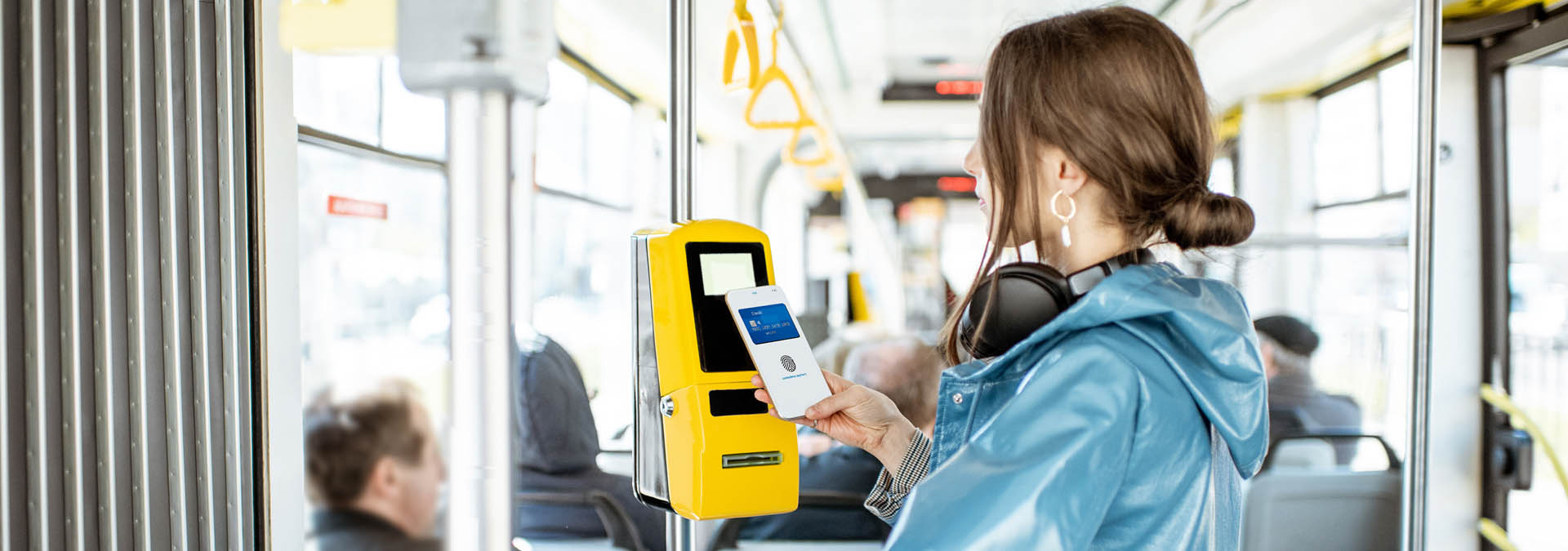In the world of urban mobility, digital payments are swiftly reshaping traditional business models and propelling a new era of growth. Digital payments are more than just a tool for streamlining transactions; they can offer transit operators the opportunity to increase revenue, safeguard against fraud, and encourage transit use through insightful data.
So, how can payments help fast-track your revenue? The answer lies in their ability to help you create innovative options that offer flexibility, strengthen risk management, and boost ridership.
Boosting revenue with flexible payment options
A key way you can drive revenue growth is to implement flexible payment options for your riders. By offering a variety of payment methods, mass transit can become more user-friendly and inclusive, catering to a diverse range of passenger needs. Innovative options like buy now, pay later and in-app payments offer passengers added flexibility and convenience. It also helps operators capture every potential sale, helping you build a steady and robust revenue stream.
Enhance passenger loyalty with tokenization
Tokenization is a game-changer in the transit industry. It allows transit operators to recognize passengers across all the different ways they travel, providing rich insight into their travel and purchasing patterns. This technology paves the way for loyalty programs and rewards in mass transit, letting operators offer incentives that strengthen riders’ loyalty.
For instance, an operator could establish a partnership with a local coffee shop that rewards monthly transit ticketholders with discounts on their favorite beverages. This will not only help boost passenger loyalty but it can also help drive increased revenue, creating a win-win situation for all parties.
Elevate fraud management with AI and machine learning
Fraud is a significant concern in urban mobility, making up 1.14% of transactions.1 However, digital payments and advanced technologies such as AI and machine learning are transforming this landscape. When deployed effectively, these technologies can help ensure you capture legitimate transactions while minimizing unwarranted rejections, enhancing your profitability and passengers’ overall experience.
Lower costs by shifting to digital
Digital payments can also lead to substantial cost savings for transit operators. Innovations like virtual cards minimize the expenses associated with the production and distribution of physical closed-loop cards. And the shift to digital payments reduces the resources you need to spend handling cash and printing tickets, helps ensure accurate fare payment, and minimizes refund claims due to pricing errors.
From flexible payment options to tokenization, elevated fraud management to new cost efficiencies, digital payments are enabling transit operators to improve their bottom line. It’s truly redefining how we travel, making it more flexible, rewarding, and safer for all.
If you’d like to know how Visa Acceptance Solutions can help transform your transit operations and increase revenue opportunities, please check out our interactive guide or request a consultation with our team. We can help you build an effective payment strategy for the future—whether you're looking to scale confidently, keep pace with innovation, or create new opportunities.
Together, let’s pave the way for the smart and connected cities of the future.
1 2023 Visa Merchant Fraud Report, August 2023. Based on insights from 2.7 billion+ global transactions worth $381B from our flagship fraud prevention solution Decision Manager, Visa has compiled our latest findings about fraud trends and AI automation. Transit is referenced as one of the industries with one of the highest fraud rates.
Disclaimer: These materials and best practice recommendations are provided for informational purposes only. Visa is not responsible for your use of these materials, recommendations or other information, including errors of any kind contained in this document.

